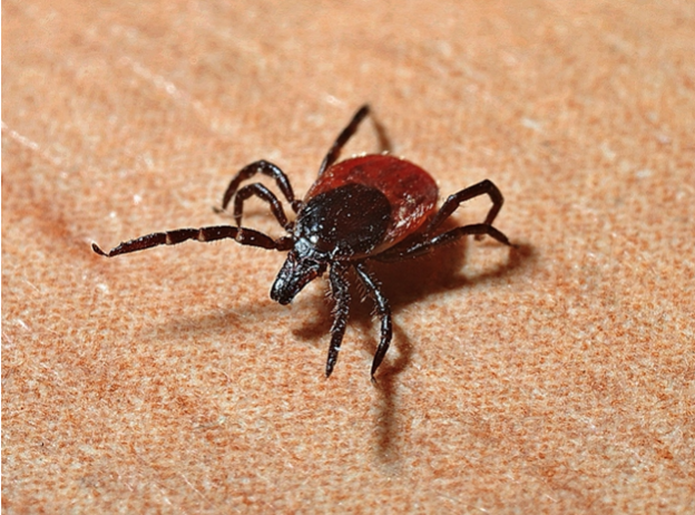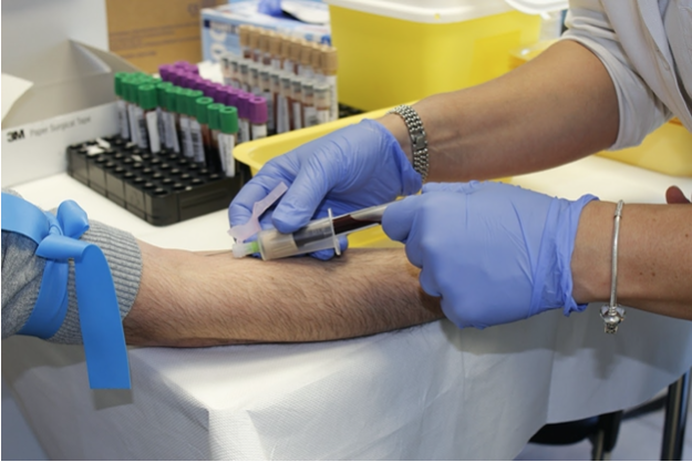What To Do When It's Not All In Your Head : A Comprehensive Guide To Dealing With Lyme Disease4/24/2020
Tragically, many that suffer from Lyme are used to being told that their problems are ‘all in their head.’ Of course, this can be a very frustrating and devaluing experience, especially when, in fact, Lyme disease is a physical condition that comes with a clinical diagnosis. The good news is that getting educated on the subject can really help. Both in terms of getting a diagnosis and proper treatment. Therefore if you suspect you or someone you love may be suffering from Lyme disease, keep reading for a comprehensive guide on the condition.
Contracting Lyme Disease
People get Lyme by being bitten by ticks. These ticks will have fed off other wild animals, such as deer. Which are known to have the bacteria that carry Lyme in their blood. The bacterium is then transferred to humans through the tick bite. However, not all ticks carry Lyme, so even if you have been bitten, you may not contract the disease. Additionally, the likelihood of getting Lyme from a tick increases the longer that it is attached to your body. That means if you can safely remove the tick as quickly as possible, you can significantly reduce your chances of getting this often debilitating condition. Symptoms One of the first things you need to know about Lyme disease are the symptoms. Unfortunately, even at this initial stage, sufferers can run into some significant problems. The reason being there are so many symptoms that can present when someone has this disease. A situation that occurs because the bacteria Lyme Borreliosis impacts on the immune system of the sufferer so much, it can seem as if they have an autoimmune disease. Both to the untrained and the professional eye. In fact, over the long term, symptoms of Lyme may range from severe neurological conditions such as inflammation of the nerves, cranial nerves, or brain. (Meningitis) To less critical but still life-impacting issues such as incontinence, fatigue, tinnitus, and vertigo.
Joint inflammation and arthritis type symptoms, particularly in the knees, are also very typical of Lyme. Especially if it has gone untreated for a long time. Additionally, nervous system symptoms are also common with Lyme disease. These can include things such as poor focus, dyslexia, and memory loss. Along with headaches, seizures, and neuralgia.
Psychological symptoms are also often present, including depression and anxiety. Still also more specific conditions such as ADHS, OCD, and mood lability as well as many others. Of course, not every patient will present all these symptoms at one time. There are also many more that can be attributed to Lyme, which you can read about in more detail here. However, while there are a vast range of symptoms that sufferers can struggle with, there are a few acute signs that often point medical professionals in the direction of Lyme. One of these is a rash, which is quite distinctive in many cases. It is often known as a bull's eye rash, one that has a raised red welt at the center surrounded by paler skin with a red circumference. This is the rash that is created on the site of the tick bite. The latter being the critical course of transmission of the Lyme bacteria into the human body. Along with the rash, sufferers also report flu-like symptoms such as headaches, fevers. Some people in the early stages of Lyme disease will also have facial palsy. This is when one side of the face drops and becomes paralyzed for a few days. Diagnosis The sad thing about suffering from Lyme disease is that while the symptoms can be hugely debilitating, patients are not always taken seriously. This is because the symptoms may look like many other diseases. Also, in some cases, when investigations are performed, and no biological reason is found, patients can be accused of hypochondria. That it is all in their heads!
This is because currently, there is no single test that can be used to detect Lyme disease in a person's system. Although it is worth noting that if you have the rash described above, heading to the doctors, or taking a picture of this to show as evidence can be very helpful indeed.
Other factors that medical professionals will look for when considering this diagnosis include a patient's history. It is also likely that they will ask you about the likelihood of exposure to ticks, as well as the other symptoms you have experienced. Additionally, your medical provider will question you about how you have responded to treatment like antibiotics in the past.
Also, do bear in mind that some blood tests can be helpful when diagnosing Lyme disease. However, on their own, they are not a reliable indicator of the condition. Therefore, they should only ever be used as part of a more holistic approach.
Treatment
A more standard approach to treating Lyme disease is to prescribe a high dose antibiotic. However, the results of this treatment are variable. In fact, there has been some research that shows things like biofilms can shelter the disease in the body. Something that makes any antibiotic treatment much less effective. The good news is that there are now clinics that offer biofilm eradication for those suffering from Lyme disease. Something that may help to make any further antibiotic treatment you receive much more long-lasting and productive. What to do if you suspect you have Lyme? The first thing to do is to seek help immediately. In fact, where possible, get to the doctors while you are showing the initial symptoms. Such as the rash, fever, and palsy. Something that can make it much easier to get a diagnosis and, therefore, the treatments you will need. However, even if you are not showing the acute symptoms of a tick bite, getting to see a medical professional can make all the difference. Where possible, ask to be referred to an infectious disease or immunotherapy specialist to discuss your particular symptoms with them. In fact, professionals working within this specialism will be used to dealing with cases of suspected Lyme. Therefore they are the best people to guide you through the diagnosis and treatment process.
1 Comment
Elizabeth
4/26/2020 11:21:16 am
Great article!!!
Reply
Leave a Reply. |
Quick Search:
Archives
October 2023
|






 RSS Feed
RSS Feed